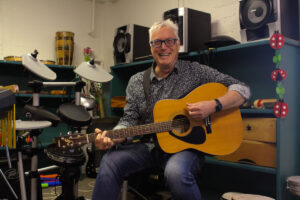Michelangelo Pistoletto jump-start Spark
The Michelangelo Pistoletto Band performed at the Waikato Museum (Te Whare Taonga o Waikato) as a prelude to Spark Week hosted by Wintec.
The Michelangelo Pistoletto Band performed at the Waikato Museum (Te Whare Taonga o Waikato) as a prelude to Spark Week hosted by Wintec.
Firstly Michelangelo Pistoletto are not a band. Neither are they musicians. Eunji Cho and Bona Park are a performance art duo from Seoul, Korea.
Dressed in voluminous wedding dresses resembling layers of marshmellow, for their performance last Thursday they lip-synched through a quartet of tunes ranging from electro-pop to quirky odes of love.
Perplexed? Bear with me.
Named after Italian artist Michelangelo Pistoletto, founder of an artistic residency where Cho and Park studied, they liked the complexity of his name.
“We thought it fit well with our work,” says Park.
It is their installation work shown earlier in the day at Ramp Gallery that resonated. Anyone who has observed Hamilton inner-city carcasses can identify with it. As businesses relocate to satellite areas like the Base, buildings are left bereft.
MPB’s message is simple enough. In a quest for internationalism – a product of globalisation – we are losing the heart of our communities.
In Korea specifically, there is a race to become ‘westernised’. On Seongam Island, Seoul, a rather bizarre land-tax arrangement has land owners constructing buildings to avoid paying tax. These buildings, for lack of tenants, sit empty in barren wastelands.
The duo’s 123 Project, named after the bus route to the island, involved installations within these empty buildings. They used illuminated mounds of dirt to draw attention to the phenomenon. They also performed live outside an empty building at dusk.
The kookiest thing on the island is a resort for the wealthy. It has a pseudo American/Dutch barn architecture, alien to the environment and landscape. Touted as a wondrous piece of architecture by developers, it is a glowing example of the internationalism fad.
This is a problem in greater Korea as developers race to outdo each other with no regard to the culture, creating buildings which block out light and landscape rather than work with nature, says Park.
This has created a tension within communities, with the population undergoing a mass identity crisis.
Park explains that the Mayor of Seoul who was behind this major thrust to develop, got run out of town. Lee Myung-Bak is now, incredibly, the President of South Korea.
For a full list of the Spark week’s events visit the website: Spark.net.nz




